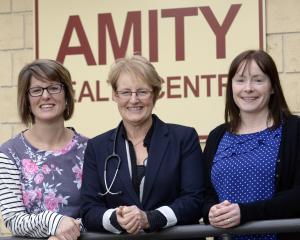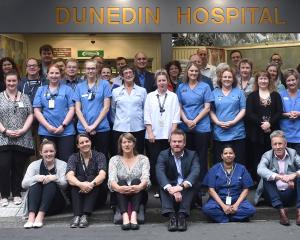
Increasing demands are being made for health services and frustration over aspects of current funding is coming from community services, some specialists and the board chairman Richard Thomson.
The Otago Community Hospice and the Plunket Society in Otago-Southland are two organisations which have recently spoken out about money available for their services.
Chief executive Brian Rousseau told last week's board meeting escalating funding expectations in that part of the sector as a result of increasing inflation was one of the key issues facing the board.
The board finished last financial year with a $4.9 million unaudited deficit, $1.6 million higher than budgeted. The board's total revenue for the year was almost $494 million.
Mr Rousseau told the board "unless we do something differently, we will not be able to live within the funding", something which was still being discussed with the ministry. Details of the board's budget are not revealed until the district annual plan is approved by the ministry.
Within its own services, the short-staffed board is also worried about how it will meet expected elective surgery volumes, and maintain tight expenditure control when faced with wage settlements and inflation.
Mr Rousseau said managing within capital expenditure requirements was a concern.
Mr Thomson has spoken out about the $5.5 million the board is expected to pay in capital charges this financial year - $4 million relating to plans to upgrade facilities at Dunedin and Wakari hospitals and $1.5 million resulting from the increase in value of the board's buildings and land.
If there was an insistence such money had to come out of operating costs, services would be affected, he said.
He has also referred to the situation the board is in over mental health funding. If it accepted money for new services, it could have funding removed by the Ministry of Health from other services (a situation which can only be resolved by a review of that funding, which has not yet taken place).
Some specialists have also been critical of funding based on population rather than the incidence of disease.
Ear nose and throat surgeon Martyn Fields believes there is no incentive to adequately fund the public health system or provide tax relief for those paying for medical insurance or treatment in the private sector, as it is a great revenue source for the Government.
Dunedin gastroenterologist and senior lecturer in medicine at the University of Otago Dr Michael Schultz has described the provision of free colonoscopy services across New Zealand as unfair. Some people in Dunedin were not getting free surveillance colonoscopies because the service could not be offered publicly, but if they were in Auckland they would.
The board's budget blow-out last year was mostly caused by the board being unable to include realistic wage estimates, Mr Thomson told the board last week.
Boards were instructed nationally to put the same projected wage increases in their budgets because the collective agreements with staff were national collectives.
Nobody believed the figures would be met, but boards were not in the same position as private organisations because they had to include budget figures in their annual plans, which were available to the public.











